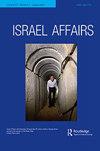以色列伊斯兰法院的法律权限
IF 0.6
4区 社会学
Q3 AREA STUDIES
引用次数: 0
摘要
摘要以色列伊斯兰法院的活动反映了“法律混杂”的复杂现实。为传统阿拉伯社区服务的穆斯林法庭受到当地环境和内部变化过程的影响,同时也受到西方现代文化的影响。因此,有时可能表达保守看法的法律裁决和伊斯兰教法条款与有时可能反映其他看法的一般州法律一起运作。在这篇文章中,对以色列四个地方伊斯兰法院的24个案件以及伊斯兰上诉法院的几项裁决(1993年至2009年)的“法律权限”问题进行了抽样调查。鉴于权限是一个关键的法律问题,审查法院关于这一问题的裁决,可以在一个法院系统内审查以色列法律和伊斯兰教法适用的复杂性,一方面,这些法院系统是国家正式法律系统的组成部分,另一方面,它们将自己视为穆斯林少数群体及其文化的代表。本文章由计算机程序翻译,如有差异,请以英文原文为准。
Legal competence in Shari’a courts in Israel
ABSTRACT The activity of the Shari’a Court in Israel reflects a complex reality of ‘legal hybridity’. The Muslim tribunal serving the traditional Arab community is influenced by local circumstances and processes of internal change alongside the influence of Western modern culture. As a result, legal rulings and Shari’a terms that may sometimes express conservative perceptions operate alongside general state law that may sometimes reflect other perceptions. In this article, decisions of Shari’a courts in Israel are examined on questions of ‘legal competence’ in a sample of 24 cases from four Israeli local Shari’a courts as well as a couple of decisions from the Shari’a Court of Appeals (between 1993 and 2009). In view of competence being a key legal issue, examining the court decisions on this issue makes it possible to examine the complexity of the application of Israeli law and Shari’a law within a system of courts that on the one hand, are integral to the state’s formal legal system while on the other they see themselves as representatives of the Muslim minority and its culture.
求助全文
通过发布文献求助,成功后即可免费获取论文全文。
去求助
来源期刊

Israel Affairs
AREA STUDIES-
CiteScore
0.70
自引率
25.00%
发文量
65
期刊介绍:
Whether your major interest is Israeli history or politics, literature or art, strategic affairs or economics, the Arab-Israeli conflict or Israel-diaspora relations, you will find articles and reviews that are incisive and contain even-handed analysis of the country and its problems in every issue of Israel Affairs, an international multidisciplinary journal. Scholarly and authoritative, yet straightforward and accessible, Israel Affairs aims to serve as a means of communication between the various communities interested in Israel: academics, policy-makers, practitioners, journalists and the informed public.
 求助内容:
求助内容: 应助结果提醒方式:
应助结果提醒方式:


